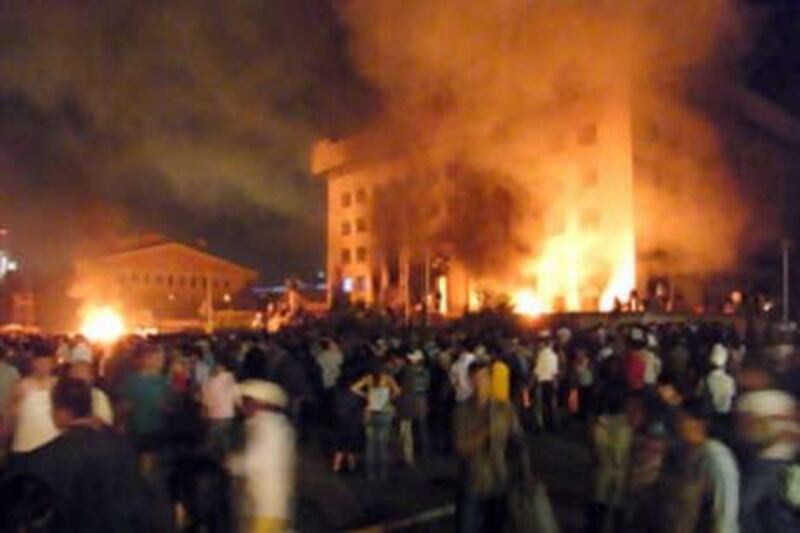Soldiers and border guards have been drafted in to the Mongolian capital Ulan Bator amid fears of more confrontations following deadly protests over alleged electoral fraud. "Border troops and armed forces are being used to improve security in the city because of an insufficient number of police," Justice Minister Tsend Munkh-Orgil told a press conference today. The measures were part of a four-day state of emergency declared late on Tuesday by the Mongolian president, Nambariin Enkhbayar, to quell riots in the capital Ulan Bator, in which five people were killed and 329 injured.
The violence erupted following allegations that the formerly communist Mongolian People's Revolutionary Party had stolen a weekend election, pitting it against the Democratic Party. Although the authorities said that the violence had been quelled overnight and the streets of Ulan Bator appeared calm today, Mr Munkh-Orgil said that more protests were planned. "We have word that certain groups are organising for large demonstrations after the end of the state of emergency. The government will suppress any such acts," he said, without elaborating on who was planning them.
He said 1,800 police officers were deployed to maintain order in the city but the scale of the unrest had required that more security personnel be sent in. "We have also sent special security to protect gas stations, which could be blown up. There are eight gas stations being protected by 16 members of the security forces," he said. Mongolia, a landlocked nation of nearly three million people, has a history of political intrigue and turmoil since emerging from 70 years as a Soviet satellite to hold its first democratic elections in 1992.
But this week's violence was among the worst since the country adopted the democratic model. Mr Munkh-Orgil said that about 8,000 people had protested in the streets yesterday, adding that 108 policemen were among those hurt, some of whom remained in comas. Among the 221 civilians injured were four foreign nationals, including a Japanese journalist.
AFP





